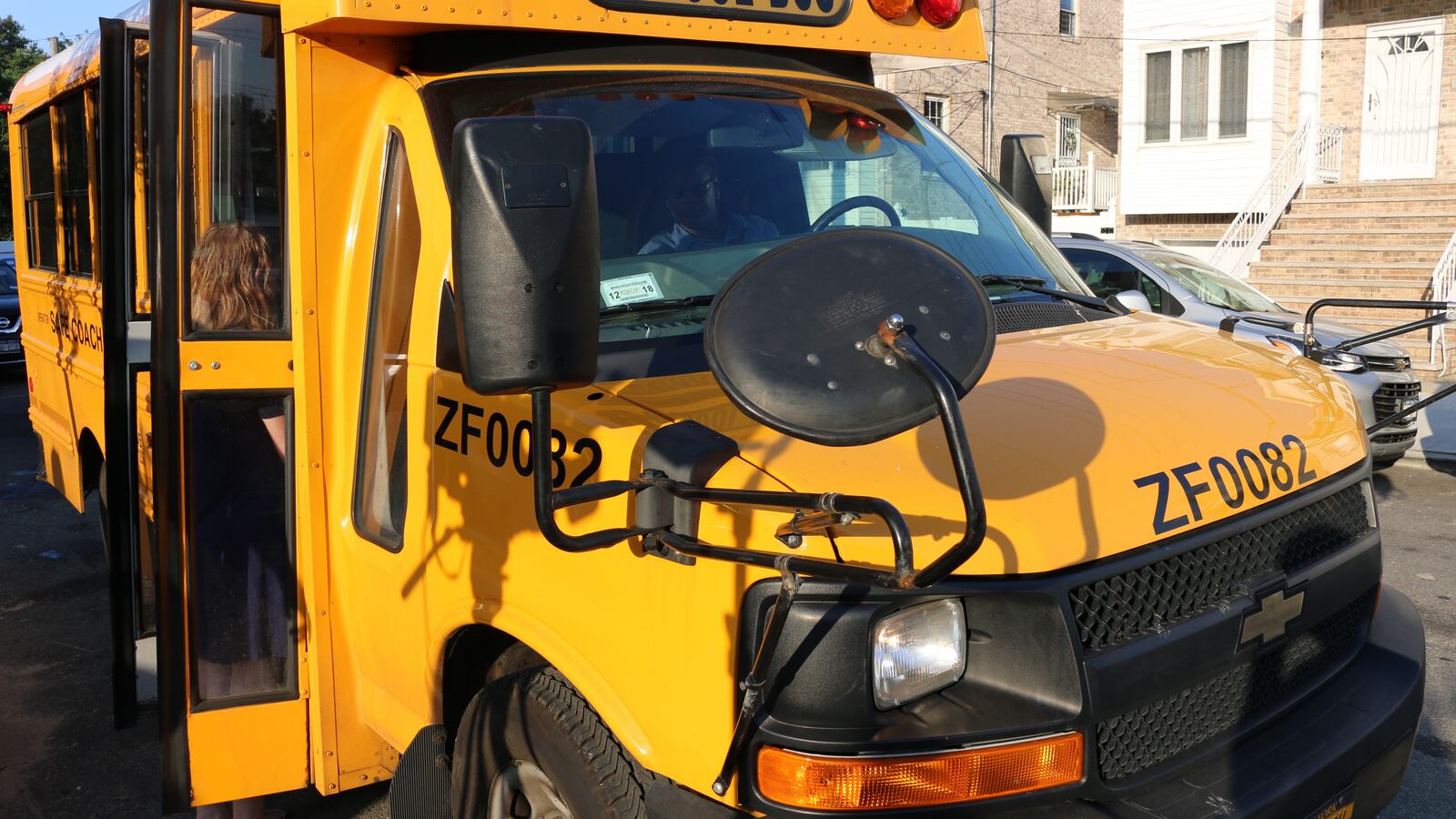Chancellor Richard Carranza and Mayor Bill de Blasio rejected the idea Wednesday that New York City might employ busing to integrate schools, closing the door on one strategy that could aid their desegregation push.
“I don’t see there having to be a need for that kind of an intervention,” Carranza said during an appearance with de Blasio at P.S. 377 in Queens. “I don’t think it’s the kind of thing we want in our city.”
In Carranza’s first months as chancellor, he has demonstrated seemingly boundless support for school integration, backing multiple initiatives to change how students are admitted to sought-after schools. Then, this week, the New York Times reported that Carranza “supports a more limited use of transportation, to make school choice ‘more equitable'” — and that city officials declined to give more specifics.
Research has found that low-income students and students of color do better in integrated schools. But the U.S. Supreme Court has curtailed — but not prohibited — efforts to explicitly consider race in order to integrate schools, a position recently boosted by the Trump administration. Districts remain largely free to consider other factors, such as poverty or neighborhood, in school assignment, as New York City is increasingly doing in parts of the city.
Some advocates say they want to see New York City counteract residential segregation more aggressively by requiring students to attend school in neighborhoods other than their own — a strategy its critics call “forced busing.” In the 1970s and 1980s, that approach effectively integrated schools — and decreased performance gaps between students of different races — in cities where it was tried.
But the practice also generated strong resistance from white families, many of whom moved rather than send their children across town to school, depleting their cities’ tax bases and leaving insufficient numbers of white students behind to integrate schools. The resistance was perhaps most famous in Boston, a fight de Blasio witnessed growing up in neighboring Cambridge. The mayor said earlier this year that he thought busing had “absolutely poisoned the well” in Boston.
“I don’t think it’s the right way to achieve the goal,” de Blasio said Wednesday. “And I don’t think it helps achieve that other central goal, which is improving schools for all our children.”

